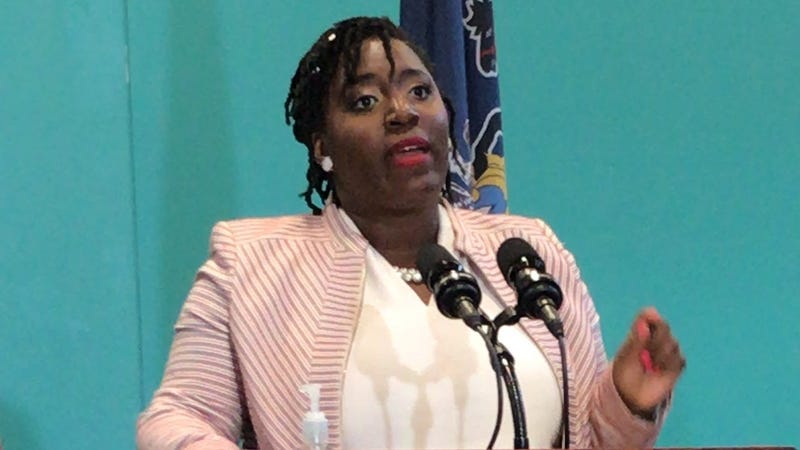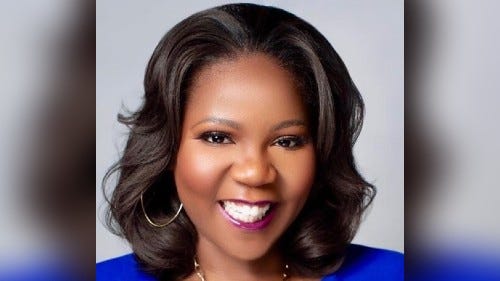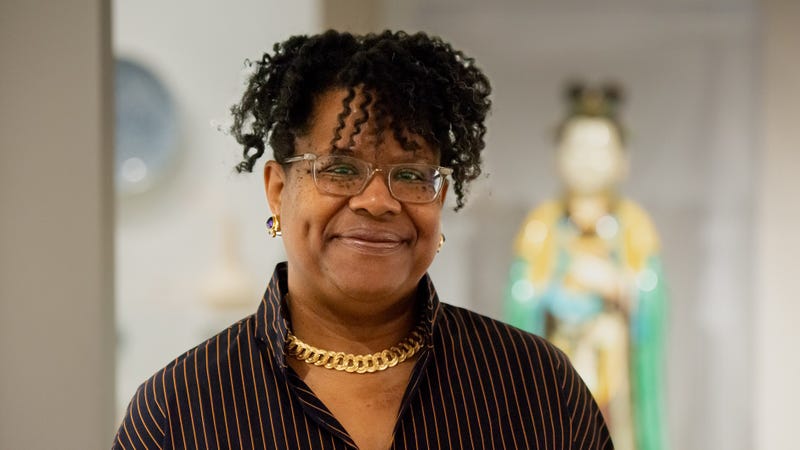UPDATE: April 7, 2:05 p.m.
The U.S. Senate has confirmed Judge Ketanji Brown Jackson to the Supreme Court. She is the first Black woman to be confirmed to the nation's highest court.
Jackson's supporters have hailed this moment as a long overdue milestone, bringing sorely needed diversity, perspective and life experience to the court.
President Joe Biden's historic nomination earned a thin margin of bipartisan endorsement, a significant accomplishment, in the evenly divided Senate. Three Republicans joined every Democrat to vote 53-47 to cut off debate on Jackson’s nomination and push forward with her confirmation.
The 53-47 confirmation vote went along the same lines.
Before the vote, Democratic Sen. Dick Durbin, chairman of the Senate Judiciary Committee, said her nomination has resonated with Americans from all across the country.
Jackson will replace retiring Justice Stephen Breyer, for whom she clerked more than 20 years ago.
The original story follows
PHILADELPHIA (KYW Newsradio) — The Senate Judiciary Committee vote on Monday morning — likely resulting in a tie along party lines — will be the first step toward confirming President Joe Biden's nominee for U.S. Supreme Court, Judge Ketanji Brown Jackson. A final vote in the full Senate is expected later in the week. With Sen. Susan Collins, Democrats will have at least one Republican vote, all but assuring, for the very first time, the elevation of a Black woman to the high court.

Three Black women who are blazing trails in law and politics say this American milestone has been long anticipated. The Supreme Court of the United States was established more than 230 years ago. Black women have waited 23 decades for the representation and validation that would come with seeing someone who looks like them on the nation’s highest court.
Democratic state Rep. Joanna McClinton, of Pennsylvania’s 191st district; Temple University graduate and Democratic political strategist Adjoa B. Asamoah, who serves as an adviser to President Joe Biden; and Danielle Conway, Dean of Penn State Dickinson Law, all spoke to KYW Newsradio about what this moment means for them.

Excitement
“It's just exhilarating. It is really, really exhilarating and makes you thrilled, excited,” McClinton said.
“To see that it's taken 232 years for even a nominee to be a Black woman is historical and exciting. And to know that, out of almost 4,000 federal judges, that less than 2% are Black women — this is a truly, truly significant moment in time in our country.”
McClinton shares with Jackson a background as a public defender. And she understands the weight of being a “first” — she made Pennsylvania history as the first Black woman to lead a caucus and be elected as floor leader.
“You spend your entire law school education reading Supreme Court cases — and to know that not one of those decisions has ever been made by a Black woman, that history is about to be made with the confirmation of Judge Ketanji Brown Jackson,” McClinton said.

Representation
"This sister is bad!” said Asamoah. “And so it is a feeling of pride, having worked on the campaign to elect President [Joe] Biden and Vice President Kamala Harris, who was a dynamic sister in her own right … to see an image of the president, with two Black women standing — one on the right, one on the left — that's a powerful image."
Aside from the politics, she says the milestone brings about empowerment for generations to come.
“This particular administration looks more like the country than those in the past. So it is a great source of pride and joy. President Biden has put more black women on the federal bench than all other presidents combined. That's powerful.”

Opportunity
“This is the first opportunity that we have to incorporate a Black woman's voice on the record of the law, and on the record of history,” said Conway.
“When you study the opinions that this Black woman will write, you will have a richer, more robust understanding of what it means to have a multicultural democracy, a multiracial democracy, a democracy that truly does begin living up to equal protection of the laws.”
A Philadelphia native, Conway was the first Black dean of the University of Maine School of Law.
“We have, at Penn State Dickinson Law, 38-to-44% of our student body identifying as students of color. So what this has meant for them is a representational moment where they see possibilities that they have not seen before in the legal profession,” Conway said.
”And so when I say ‘excitement,’ I mean not only excitement about this stellar, eminently qualified woman who identifies as a Black woman — what I mean is the excitement of new possibilities, where before, they had not seen them.”




